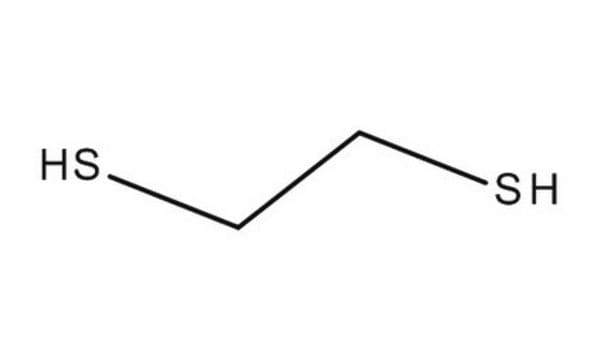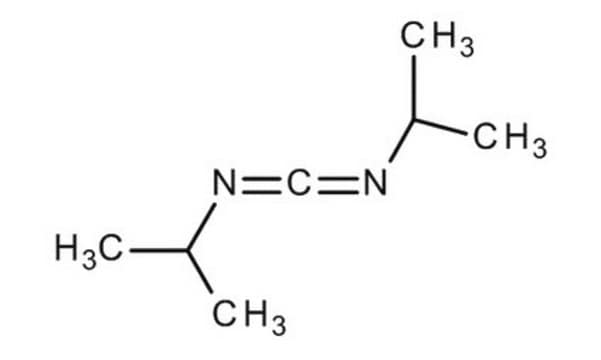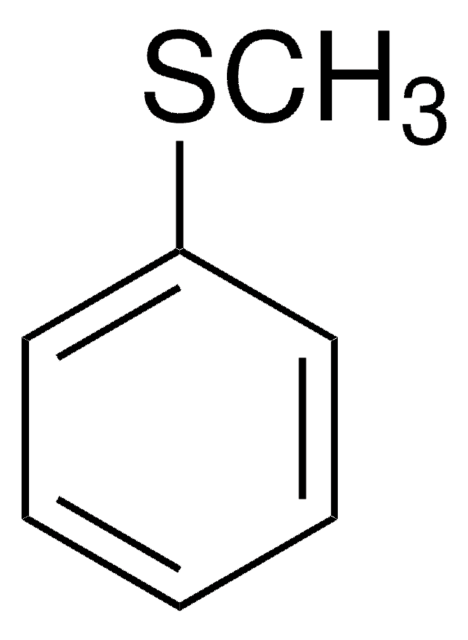8.41359
Triisopropylsilane
for synthesis
Synonym(s):
Triisopropylsilane
About This Item
Recommended Products
Quality Level
Assay
≥98.0% (GC)
form
liquid
bp
84-85 °C/46.7 hPa
transition temp
flash point 35 °C
density
0.77 g/cm3 at 20 °C
storage temp.
2-30°C
InChI
1S/C9H22Si/c1-7(2)10(8(3)4)9(5)6/h7-10H,1-6H3
InChI key
YDJXDYKQMRNUSA-UHFFFAOYSA-N
Application
- Total synthesis of diazaquinomycins H and J using double Knorr cyclization: This paper covers the first total synthesis of diazaquinomycins, highlighting the role of triisopropylsilane in enhancing reaction efficiency (Prior & Sun, 2019).
- Reduction of cysteine‐S‐protecting groups by triisopropylsilane: An in-depth look at the chemical properties of triisopropylsilane, emphasizing its effectiveness in peptide synthesis processes (Ste. Marie & Hondal, 2018).
Analysis Note
Density (d 20 °C/ 4 °C): 0.765 - 0.772
Identity (IR): passes test
Signal Word
Warning
Hazard Statements
Precautionary Statements
Hazard Classifications
Flam. Liq. 3
Storage Class Code
3 - Flammable liquids
WGK
WGK 3
Flash Point(F)
100.4 °F - closed cup
Flash Point(C)
38 °C - closed cup
Certificates of Analysis (COA)
Search for Certificates of Analysis (COA) by entering the products Lot/Batch Number. Lot and Batch Numbers can be found on a product’s label following the words ‘Lot’ or ‘Batch’.
Already Own This Product?
Find documentation for the products that you have recently purchased in the Document Library.
Customers Also Viewed
Protocols
Fmoc resin cleavage and deprotection are crucial steps for peptide synthesis, yielding the desired peptide after resin detachment.
Fmoc resin cleavage and deprotection are crucial steps for peptide synthesis, yielding the desired peptide after resin detachment.
Fmoc resin cleavage and deprotection are crucial steps for peptide synthesis, yielding the desired peptide after resin detachment.
Fmoc resin cleavage and deprotection are crucial steps for peptide synthesis, yielding the desired peptide after resin detachment.
Our team of scientists has experience in all areas of research including Life Science, Material Science, Chemical Synthesis, Chromatography, Analytical and many others.
Contact Technical Service













